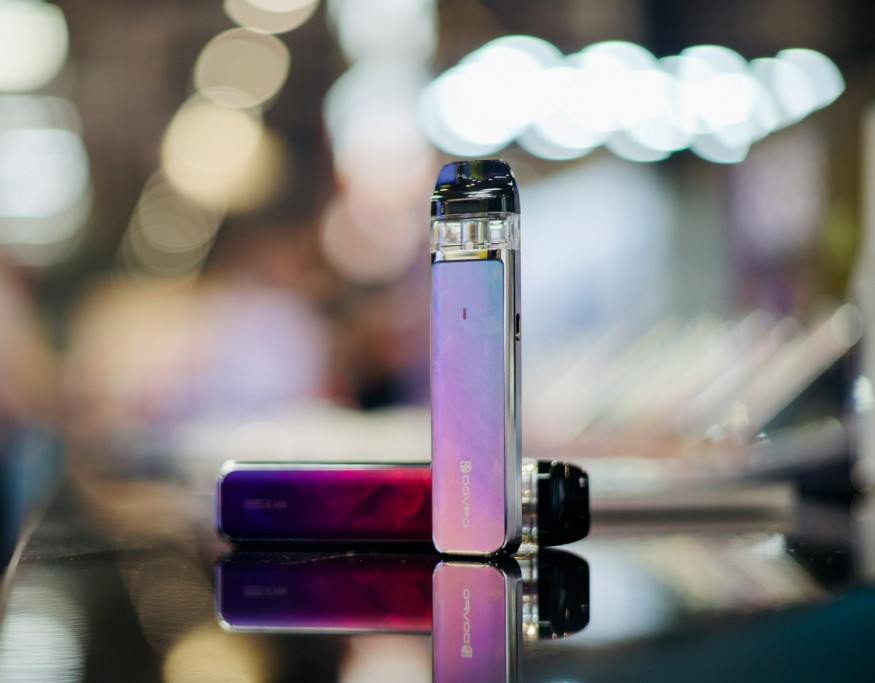Brazil Maintains Ban on E-Cigarette Sales

In a definitive stance against the growing global trend of vaping, Brazil has reaffirmed its prohibition on the sale and importation of electronic cigarettes. This decision by Anvisa, the Brazilian Health Regulatory Agency, was unanimously voted on April 19, 2024, highlighting the country's ongoing commitment to public health over industry pressures.
Background and Current Regulations
Brazil's initial ban on e-cigarettes was instituted in 2009, covering the manufacturing, sale, importation, and advertising of these products. According to surveys published via the National Institute of Health, approximately 4 million Brazillians vape. Despite being illegal, e-cigarettes have continued to be easily accessible through small shops and online markets across the nation; this accessibility has sparked significant debate regarding the potential regulation and legalization of such products.
Health Concerns and Regulatory Justifications
Anvisa's decision to uphold the ban follows concerns similar to those voiced globally about the safety of vaping products. The decision followed a public consultation process, highlighting the agency's effort to involve public opinion before finalizing its stance. Moreover, the Anvisa President, Antônio Barra Torres, referenced a specific December 2023 World Health Organization publication that recommended governments prohibit electronic cigarettes, which underscores the global health perspective influencing Brazil's policy. Highlighting the urgency of regulatory measures, statistics from the Brazilian Institute of Geography and Statistics reveal that 16.8 percent of Brazilian students aged 13 to 17 have experimented with vaping, signaling a significant penetration among youth.
The regulatory body cited the increase in underage vaping in countries where e-cigarettes are permitted, nicotine's highly addictive nature, and the absence of conclusive long-term health impact studies as core reasons for maintaining this ban. Moreover, the stand being taken is that allowing e-cigarettes could potentially undermine Brazil's comprehensive tobacco control policies—policies which have received international praise for their effectiveness in reducing tobacco consumption and preventing chronic diseases.
Industry and Public Reaction
The continuation of the e-cigarette ban has stirred reactions from various sectors within Brazil. The tobacco industry, represented by voices like Philip Morris Brasil, has criticized the decision, arguing that the ban only fuels an unregulated and booming illicit market; they advocate for a regulated market that could ensure product quality and safety standards. On the other hand, public health advocates support the ban, emphasizing the need to prioritize long-term health outcomes over commercial interests. Industry representatives, including the Brazilian Tobacco Industry Association (ABIFUMO), argue that Brazil's stringent stance neglects the regulatory lessons from over 80 countries that have legalized and regulated e-cigarettes, suggesting a potential reevaluation of domestic policies in light of international practices.
Legislative Discussions
While Anvisa has upheld the ban, the topic remains a subject of legislative discussion. The Brazilian Senate is currently considering a bill that would authorize the production, import, export, and consumption of e-cigarettes, although this proposal is still in its early stages without a set date for voting.
International Comparisons

Brazil's stringent policy on e-cigarettes stands in contrast to varying approaches taken by other countries. Globally, the regulatory landscape for e-cigarettes is diverse—some nations have imposed complete bans, while others tend to adopt more regulated frameworks.
Regulatory Approaches:
- United Kingdom: The UK represents a regulatory approach where e-cigarettes are legal but heavily regulated. Public Health England (PHE) supports vaping as a less harmful alternative to smoking traditional cigarettes, backed by guidelines that ensure product safety and restrict advertising to protect young people.
- United States: The U.S. has a mixed approach, with the Food and Drug Administration (FDA) regulating e-cigarettes as tobacco products. This includes requiring manufacturers to obtain premarket authorization for their products, alongside stringent marketing restrictions aimed at reducing youth vaping.
- India: Similar to Brazil, India has a complete ban on e-cigarettes, which includes production, manufacturing, import/export, sale, distribution, storage, and advertisement. This decision was made citing health risks and the gateway theory of leading non-smokers to traditional smoking.
Enforcement Mechanisms:
Enforcement in countries with regulated markets like the UK and the U.S. involves compliance checks, fines, and in some cases, product seizures when unauthorized products are found in the market. In contrast, countries with bans, like Brazil and India, have police and customs authorities actively confiscating e-cigarettes and penalizing those involved in their trade. In Brazil, the challenge of monitoring vast marketplaces and online platforms is compounded by the use of vape alarms, devices designed to detect and alert authorities about illegal vape sales. These alarms are part of an innovative approach to strengthen enforcement and reduce the black market presence of e-cigarettes.
Public Health Outcomes:
- United Kingdom: The UK has reported a decrease in smoking rates attributed partially to the availability of e-cigarettes as cessation tools. Public Health England estimates that e-cigarettes are 95% less harmful than smoking traditional cigarettes.
- United States: The U.S. has seen a rise in youth vaping, which has prompted intense scrutiny and regulatory tightening to curb the trend. Despite this, there is ongoing debate about the role of e-cigarettes in smoking cessation.
- India and Brazil: Both countries report concerns about a lack of data on the long-term health impacts of vaping, using this as a rationale for their bans. However, the effectiveness of these bans in reducing vaping rates is still debated, with concerns about black market growth.
Looking Ahead
As the debate continues both within Brazil and globally, the country's stance on e-cigarettes will likely remain a point of contention. Anvisa has committed to monitoring international research and trends, suggesting that its policies could evolve based on new evidence regarding the safety and impacts of vaping products.
For now, Brazil remains one of the few countries steadfast in its comprehensive ban, prioritizing public health considerations in the face of an evolving nicotine consumption landscape.
Subscribe to Latin Post!
Sign up for our free newsletter for the Latest coverage!
© 2025 Latin Post. All rights reserved. Do not reproduce without permission.















